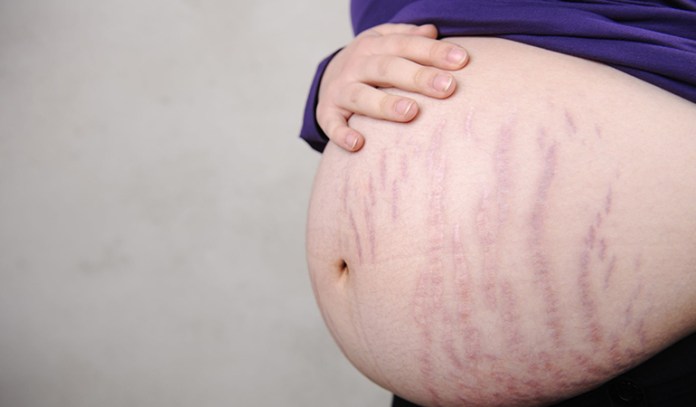Most articles, books, and television shows make it seem like pregnancy is all about that “radiant glow.” So, it might get frustrating to have to deal with a host of skin problems along with mood swings, health issues, and cravings. But, that doesn’t mean you have to be stressed out throughout your pregnancy. We have listed out a few skin conditions that come with pregnancy and how you can cure them.
1. Acne

Hormonal changes are the most common cause of acne in women. The same holds true for pregnancy as well. Although pregnancy lessens acne in some women, most others have worse acne during this time. The latter could be the result of a sudden stop in the use of birth control.1
Treating acne during pregnancy is tricky since there isn’t enough research to state whether it is safe to consume oral medications during this time. However, topical creams are considered safe because they minimize absorption and have the most safe ingredients.2
Alternatively, tea tree oil’s antibacterial and anti inflammatory properties might also help heal acne. However, there isn’t enough research to state whether it is safe during pregnancy. So, if you’d like to try a topical treatment for breakouts, consult your dermatologist for the best options.3
2. Skin Tags

Skin tags are pesky and small fleshy protrusions attached to the skin. Some skin tags have a tiny stalk, while others don’t. Skin tags related to pregnancy are categorized under benign skin tumors and are called molluscum fibrosum gravidarum.4
Estrogen and mast cells (a type of white blood cells) might be the cause of skin tags. This skin condition doesn’t require any treatment and often goes away on its own. However, if skin tags are proving to be a nuisance to your daily life, you could try an Ayurvedic treatment that uses the Apāmarga herb (Achyranthes aspera Linn). If you do choose to undergo this treatment, be sure to do so under the guidance of a professional.5
3. PUPPPs

Pruritic urticarial papules and plaques of pregnancy (PUPPPs) are itchy, bumpy rashes that come with stretch marks on the abdomen. They first appear in the last 3 months of pregnancy.
The cause of PUPPPs could be weight gain and multiple gestations. Some studies state that rapid abdominal distention in the third trimester damages the connective tissue, which in turn releases antigenic molecules, causing an inflammatory reaction.
Although PUPPPs usually clear up by the end of the last trimester, you could speed up the process of healing with topical corticosteroids and antihistamines based on your doctor’s recommendations.6
4. Stretch Marks

Perhaps the most commonly recognized skin condition associated with pregnancy, stretch marks are irregular areas of skin that look like bands, stripes, or lines. Early stretch marks are purple or red in color. As time passes, they turn white or silver.7
Stretch marks are caused due to rapid stretching of the skin. This is why they’re most likely to appear during the third trimester of pregnancy, when the abdomen expands significantly.8
Most topical treatments have proven to be ineffective when it comes to stretch marks although some might improve their appearance. Lasers and IPL therapy might also help. Alternatively, you could try topical mineral oil during pregnancy to avoid your skin from stretching too much but there isn’t enough research to validate its benefits.9
5. Melasma

Popularly known as the “mask of pregnancy,” melasma (or chloasma) is a type of hyperpigmentation that occurs in 75% of all pregnancies. It might be hereditary or hormonal and is more common in dark skinned women. It might even be worsened by sun damage.10
Treatment for melasma includes topical creams. However they are usually non responsive during pregnancy, and are hence administered only after delivery. Sometimes, you might not even need treatment since it often clears up post delivery.11
Skin problems shouldn’t stop you from enjoying pregnancy. The stress will only add to your woes. Instead, consult your dermatologist regarding all the things you can do to alleviate your skin problems. Often, waiting until delivery is all it takes. For everything else, there’s an easy and effective treatment.
References





